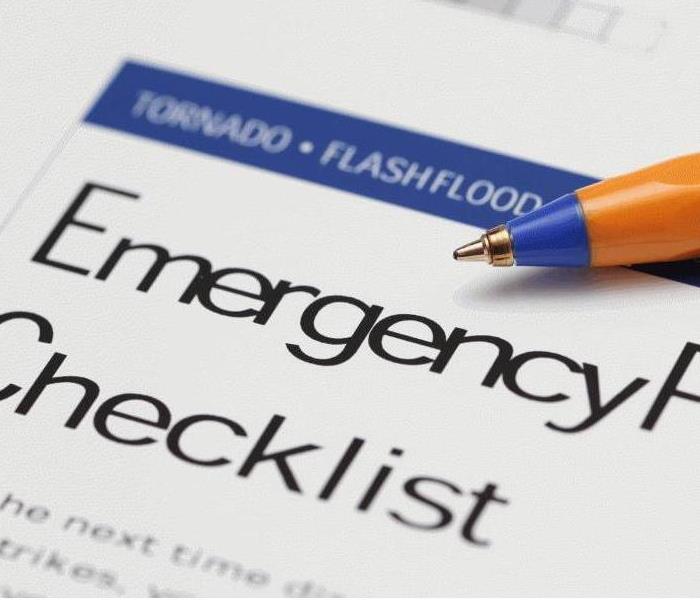Home Preparation Steps For Storm Damage in Your Makiki Home
9/11/2019 (Permalink)
Preparing for a Storm: Part 2
MAKING A PLAN
Water
- Make sure to store at least one gallon of water per person per day and store enough water to last two weeks. If you have enough water, you can live on half of your normal food intake.
- You should store more water if you:
- Live in a hot environment
- Have children
- Are nursing
- Are ill
- Rotate your water supply every six months
- Other sources of water in your home: water heater, ice cubes, pipes and toilet tank (not the bowl)
Food
Food can be rationed. Store at least a three to five day supply of non-perishable food in a dry place that is 70 degrees or lower.
Select foods that require little or no preparation, water, or refrigeration. Select foods that are high in calories, nutritious, compact and lightweight. Choose foods your family will eat.
Pets
Pets are an important member of your family. Plan for them as well. Remember that emergency shelters typically do not allow animals. Only service animals are allowed in shelters.
But you should know safe places to keep your pets if you have to evacuate with them. Where are hotels and motels outside of your area that accept pets? What friends or family members could keep them for you? Which boarding facilities, veterinarians or shelters could be used?
Utilities
Your water heater can be a critical source of water in an emergency, but only if it’s still standing. Go to your home improvement store and buy metal straps to secure the water heater to nearby studs.
A falling water heater can break gas lines and water lines or spill your water.
Gas
If you have natural gas coming into your home, it’s easy to turn off. However, only qualified people should turn gas back on.
When you should shut off your gas meter if:
- You smell natural gas
- You hear gas leaking
- There is a fire (unless shutting off the gas would jeopardize your safety)
If you need to shut off the gas, use a wrench to turn the valve a quarter turn in either direction. Take some time to become familiar with which utilities enter your home and where they can be shut off. As you practice emergency plans, locate and map the gas, water and electricity mains. During family drills, go through the movements, but do not practice shutting off gas lines.
If you have been hit by a storm call SERVPRO at (808)744-2730. We specialize in restoration and reconstruction services for fire damage, mold, and storms. Call today for an inspection.






 24/7 Emergency Service
24/7 Emergency Service
